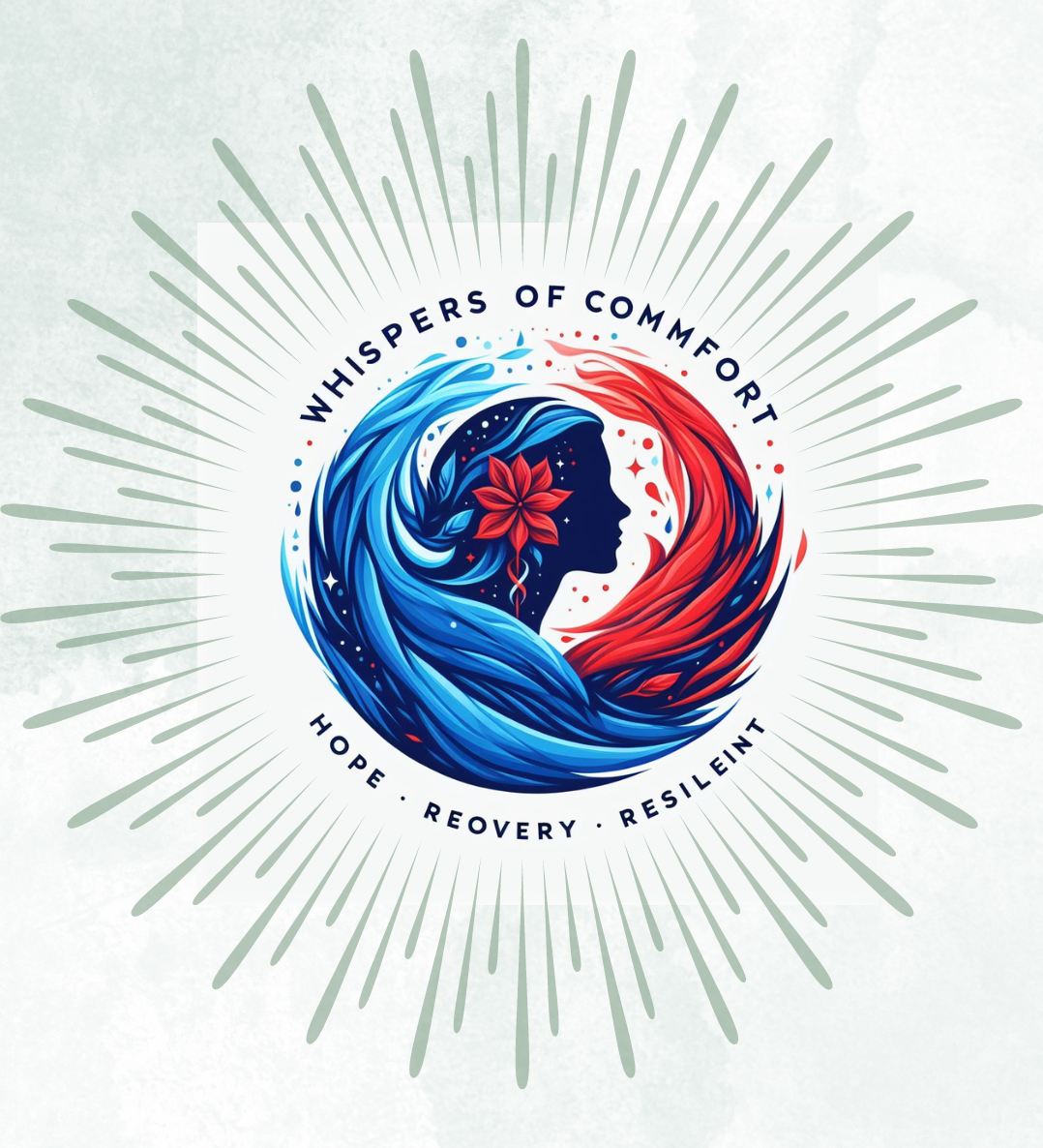
Grief and loss are profound emotional experiences that can significantly impact an individual’s mental and physical well-being.
I will start by laying the groundwork for what grief is, because getting a handle on this emotion is the root of the healing process. Grief comes in many forms and affects people differently. It can follow the loss of a loved one, the end of a significant relationship, or even the loss of a cherished personal identity or belief. There’s no one-size-fits-all when it comes to grief; what devastates one person might not even faze another.
That’s why it’s crucial to understand that everyone’s grief response is unique. I’m here to help you recognize the varied expressions of grief and to emphasize that all forms of grief are valid. This isn’t just about emotional pain; it can also involve physical, cognitive, and behavioral reactions.
A common question you might encounter is how grief differs from depression. While they share certain traits, such as intense sadness, the two are distinct. Grief usually involves a wide range of feelings, including moments of relief or peace, whereas depression tends to be more consistently pervasive.
The cornerstone of dealing with grief, and where we lead into the next section, is establishing trust. This means creating an environment where the person feels safe and understood. Without this foundation, no amount of technique or expertise will bridge the gap needed for healing. Building trust is essential, and a key part of that is being an exceptional listener, which we’ll delve into in the next section.
Active Listening: A Cornerstone of Grief Counseling
You’re going to find out about the profound impact active listening can have in the lives of those struggling with grief and loss. It’s not just about hearing their words; it’s about fully comprehending the depth of their experiences. Real healing begins when individuals feel truly heard and understood.
In my opinion, the art of active listening is the bedrock of any meaningful counseling session. That’s going to include nodding, maintaining eye contact, and avoiding interruptions. These techniques ensure the bereaved know you’re fully engaged in their story.
Creating a safe space for clients to express their emotions is paramount. I’ll show you how to foster an environment of trust and empathy, where emotions can be expressed without fear of judgment or dismissal. This is essential for facilitating a healthy grieving process.
Sadly, even well-intentioned listeners can fall into traps that hinder communication during grief counseling. I’m here to help you recognize statements that might minimize a client’s pain or come across as cliches. Steering clear of these pitfalls keeps the focus on the client’s needs.
The strategy I like to leverage is turning each listening session into an opportunity for validation and acknowledgement. Validate feelings, acknowledge the depth of loss, and confirm their right to grieve in their own way. This reinforces the counseling space as a haven for healing.
Guiding Through the Stages of Grief: Tailored Approaches

You might have heard about the stages of grief – denial, anger, bargaining, depression, and acceptance. Truth is, grief doesn’t always neatly fit into these categories. Grief is more like a fingerprint; it’s unique for every person. That’s why in counseling, recognizing where someone is in their grief process is crucial.
Evaluating a client’s journey through grief isn’t about ticking boxes; it’s about understanding their experience. As a counselor, it’s my job to pinpoint what stage of grief might be influencing their feelings and reactions. This doesn’t mean forcing them into a preset mold, but gently guiding them forward with empathy and validation.
Effective counseling calls for adapting techniques to fit the individual. For instance, if someone is stuck in the anger stage, they might need a way to vent that fury constructively. Offering them a safe space to express anger or facilitating its release through physical activity or art can be transformative.
I’ve encountered stories that resonate powerfully with this approach. Take Mary, who after the loss of her son found peace through painting—a means to channel her pain and start healing. And then there’s John, who used running as an outlet for his pent-up emotions and, over time, began to find solace.
These narratives parallel the pathways we’ll explore in empowering the bereaved. The upcoming section will unwrap strategies that don’t just aim to cope with loss but to forge resilience and find new meaning amid heartache. It’s about turning a fresh page while honoring the past, and that’s a powerful aspect of grief work.
Empowering the Bereaved: Strategies for Long-Term Coping
So you’ve guided clients through the eye of the storm, the heart-wrenching waves of grief. But what about after? The goal is to leave them with a life raft they can navigate on their own. This means empowering your clients, giving them the strategies they need for long-term coping. It’s about more than just getting through each day; it’s about weaving those days into a tapestry of continued living, even in the absence of their loved one.
I’m going to focus on the practical tools you can pass along. This includes teaching clients how to recognize triggers, develop healthy coping mechanisms, and assemble a toolkit of self-care practices that resonate with them. Encourage them to journal, exercise, meditate, or engage in creative outlets. These aren’t just feel-good suggestions; they’re research-backed methods of managing grief.
I cannot emphasize enough the importance of self-care and resilience. In my opinion, the ability to bounce back from life’s blows is as much a skill as it is a trait, and like any skill, it can be honed. That’s where you come in. Show your clients how to set aside time for themselves, ask for help, and recognize when they’re making progress.
And let’s not forget the power of a strong support system. Friends, family, and support groups are the anchors that keep the bereaved steady. Your role in helping your clients identify and lean on these supports is crucial. Not only does it give them an external network to rely on, but it also helps foster a sense of belonging and purpose in a world that’s shifted on its axis.
The journey doesn’t end when the grief counseling sessions do. You’re giving your clients the tools to carve out a path to post-traumatic growth. You’re helping them find meaning beyond their loss, and that’s an invaluable gift. Guess what? They are stronger for having navigated through grief with you. Remember, your clients’ stories continue, and the skills you’ve equipped them with are the pen with which they’ll write their next chapters.
Dealing with grief and loss requires a compassionate and structured approach, where counselling techniques serve as vital tools for recovery and growth. Ultimately, the goal of grief counselling is to help individuals honor their loss while finding a renewed sense of purpose and hope for the future.
kindly share your comments and experiences below.
Simplified. Turn YOUR Passion, Hobby or Interest into YOUR Success Story! Join Wealthy Affiliate today: https://www.
**Here’s a little transparency: Our website contains affiliate links. We may receive a small commission if you click and make a purchase. Don’t worry, as there’s no extra cost to you. It’s a simple way to support our mission of bringing you quality content.
Follow me on social media!

Hey thank you for this great post!
Posts like this which provide help and support for hard times are great! People go through many emotions and sometimes it can be hard to control them or know where to get support from however when you have a ear to hear and a shoulder to lean on then it makes it much more comfortable to let loose.
Thanks again and have a great day!
Hello Sariya,
Thank you so much for your contributions and kind words. I’m glad to know that you found the artcle impactful.
I agree with you that as humans, no one can be an island: as we all need a listening ear and a shoulder to lean on, most especially when we are facing the storms of life. Support during such times can make a big difference.
We’re here to provide a listening ear and a comforting presence.
I wish you all the best,
Makinde
Your article is beautiful! I particularly love the images that somehow mirror my feelings! How did you know, I wonder? I have bookmarked this site and will return to it again and again as a treasure.
I lost my beloved 10 months ago. He was my entire world, so I could not get back. I am drugged up and can’t function normally at all. I have no desire to sleep or eat, and I have stopped dreaming, which I used to do all the time. I am dead like him: his brain damage from a diving accident caused him to shrivel and die very slowly and painfully, and I feel I’m doing the same. I’m desperate. My friends and family have given me up entirely!
Is there any hope that I will emerge from this? I’m desperate for some kind of light. Can you help??
Hello Linden,
Firstly, please accept my condolences on the passing of your beloved, who has gone to rest. I’m so sorry for your loss and the pain you are passing through.
Mourning is a natural process we go through to accept a major loss. It’s understandable that you are feeling overwhelmed and disconnected. I would like to assure you that it’s okay to mourn. However, please know that there is hope, and many have found a path to healing, even in the darkest times, and you also will.
I’m also deeply moved by your kind words and the emotions you shared. Professional counselling and support groups can provide the assistance and empathy you need right now.
You are not alone, and there are people who care and can help guide you through this. Please reach out to them.
Remain blessed,
Makinde